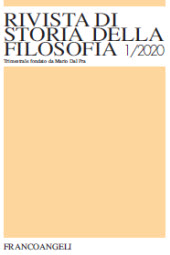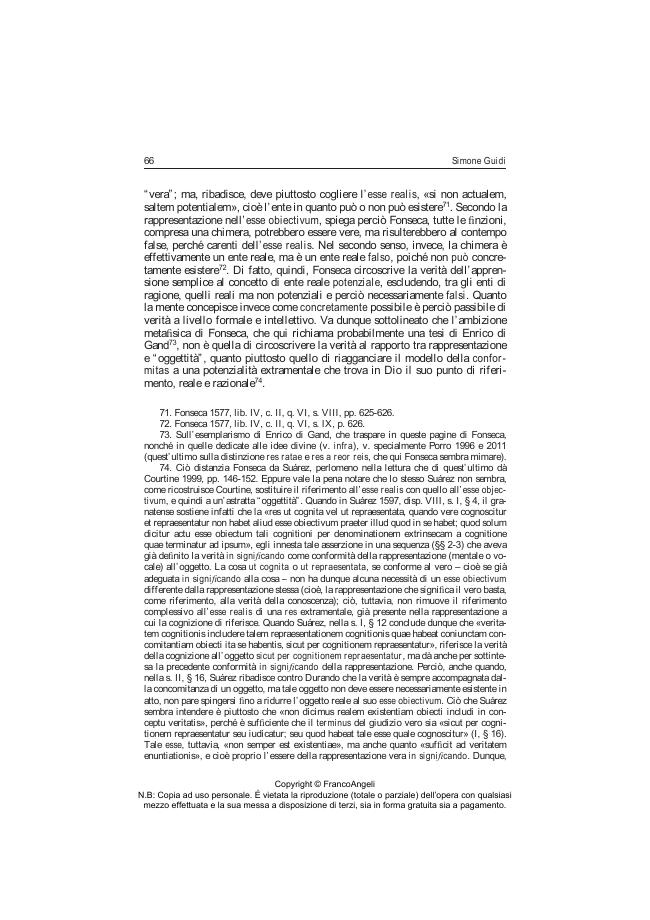La quaestio veritatis in Pedro da Fonseca : il problema della simplex apprehensio e la fondazione delle identità logiche
51-80 p.
This article deals with the theory of truth in Pedro da Fonseca (1528-1599) as it is presented in his commentary on Aristotle's Metaphysics (1577-1612). The first part of the paper is dedicated to Fonseca's definition of intellective truth within the doctrinal topography of the Aristotelian tradition. The Author especially points out Fonseca's attempt to justify the notion of a "simple" truth of the "simple apprehension", based on a specific use of Cajetan's distinction between "signified act" and "exercised act" as well as on a (partially) nominalist account of the relationship between "simple" and "enunciative" concepts. The second part deals instead with Fonseca's definition of transcendental truth, understood as the conformity between the intellect and the esse realis of the res, and as the conformity of the latter with exemplars in God's mind. Here the Author also reconstructs Fonseca's theory of divine ideas and his theory of logical identities. [Publisher's text].
Forma parte de
Rivista di storia della filosofia : LXXV, 1, 2020-
Artículos del mismo número (disponibles individualmente)
-
Información
Código DOI: 10.3280/SF2020-001003
ISSN: 1972-5558
KEYWORDS
- Pedro da Fonseca, 16th-century scholasticism, theory of truth, simple apprehension, exemplarism and logical identities



